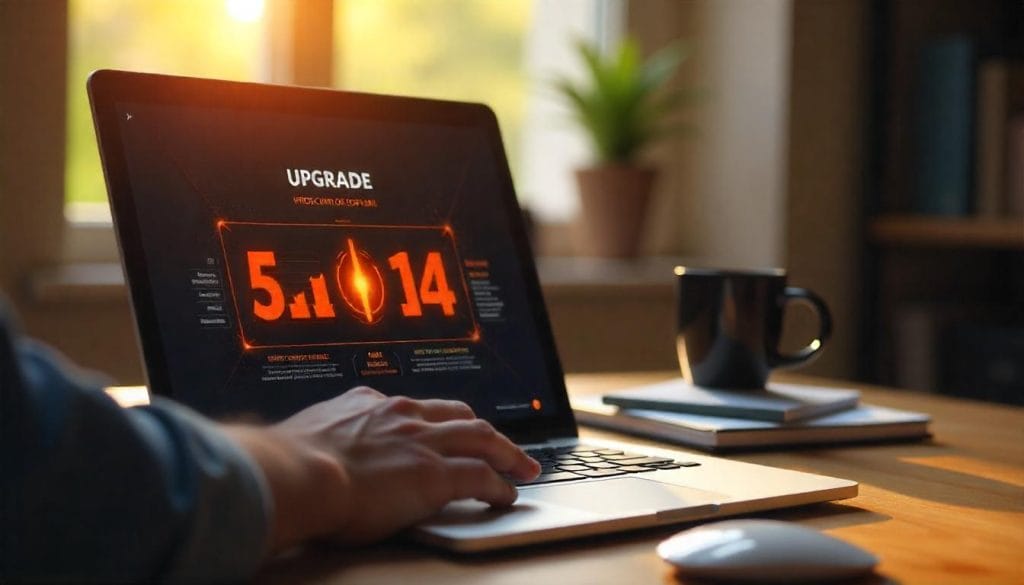Can You Upgrade the CPU in a Laptop? A Complete 2025 Guide
Can You Upgrade the CPU in a Laptop?
Introduction: A Common Laptop Performance Question
As your laptop begins to slow down or struggle with demanding applications, it’s natural to ask: Can I upgrade the CPU in my laptop? The central processing unit (CPU) is the brain of your computer, and upgrading it could, in theory, give your laptop a new lease on life.
However, in 2025, the short answer to this question is: it depends. While upgrading a desktop CPU is relatively straightforward, laptop CPUs are far more restricted by design. In this guide, we’ll explain when upgrading your laptop’s CPU is possible, the challenges you may face, and alternative ways to boost performance.
Why Laptop CPUs Are Harder to Upgrade Than Desktop CPUs
Most laptops are not built for hardware flexibility. Unlike desktops, which are designed with swappable parts and ample room, laptops prioritize portability, power efficiency, and compact design.
Here’s why upgrading a laptop CPU is difficult:
1. Soldered CPUs (BGA Sockets)
Modern laptops usually come with BGA (Ball Grid Array) processors, which are soldered directly onto the motherboard. This means the CPU cannot be removed or replaced without specialized equipment and expert-level soldering.
2. Thermal and Power Constraints
Even if your CPU isn’t soldered, thermal output (TDP) and power requirements must match your laptop’s design. Most laptops aren’t built to handle the heat or power draw of a more powerful processor.
3. BIOS and Chipset Compatibility
Even if the socket fits, the BIOS and chipset may not support a different CPU. Without official support from the laptop manufacturer, the system may not boot or run reliably.
When Is CPU Upgrade in a Laptop Actually Possible?
There are a few rare scenarios where a CPU upgrade may be feasible:
✅ 1. Older Laptops with Socketed CPUs
Some older models—especially those from before 2015—use PGA (Pin Grid Array) sockets, which allow the CPU to be removed and replaced like in a desktop.
Examples include:
Older Intel Core i3/i5/i7 (2nd to 4th gen) laptops
Select gaming laptops from brands like Clevo, Alienware, or MSI
✅ 2. High-End Gaming and Workstation Laptops
A small number of enthusiast or professional-grade laptops use socketed CPUs for modularity and upgrades. However, these are typically bulky and expensive systems that prioritize power over portability.
How to Check if Your Laptop’s CPU Can Be Upgraded
Before you even consider trying to upgrade your CPU, take the following steps:
🔍 Step 1: Identify Your Current CPU
Use Windows Task Manager → Performance tab or install a tool like CPU-Z to find out:
CPU model and generation
Socket type
Chipset compatibility
🔍 Step 2: Research Your Laptop’s Motherboard
Look up your laptop’s service manual or technical specs online. Search for whether the CPU is soldered or socketed.
🔍 Step 3: Consult the Manufacturer
Visit the laptop brand’s support page or contact their technical support to ask if CPU upgrades are supported for your model.
Risks and Challenges of Upgrading a Laptop CPU
If your system does support CPU upgrades, here are a few serious risks to consider:
Void Warranty: Opening your laptop or changing the CPU can void warranties or service agreements.
Overheating: A more powerful CPU may run too hot for your laptop’s cooling system.
BIOS Incompatibility: If the BIOS doesn’t support the new CPU, your laptop may not boot at all.
Power Limits: Laptops have tightly controlled power delivery; a new CPU may exceed what your system can handle.
Cost vs Benefit: Replacement CPUs (especially rare models) can be expensive and hard to find.
For most users, the risk and complexity outweigh the benefit.
Better Alternatives to Laptop CPU Upgrades
If your goal is better performance, you have other, safer options:
🔧 1. Upgrade to an SSD
Switching from a hard drive (HDD) to a solid-state drive (SSD) can dramatically improve boot times, app loading, and file transfers.
🔧 2. Add or Upgrade RAM
Many laptops allow RAM upgrades. More memory helps with multitasking and system speed, especially if you currently have only 4–8GB.
🔧 3. Clean Up and Reinstall OS
A fresh installation of Windows or Linux can improve performance by removing bloatware and fixing corrupted files.
🔧 4. Undervolting or Repasting
Thermal throttling can slow down your CPU. Undervolting or reapplying thermal paste (advanced users only) can help maintain higher clock speeds.
🔧 5. Use Cloud-Based or Lightweight Software
Switch to less resource-hungry applications and consider cloud-based computing for heavy tasks like video rendering or AI development.
When It’s Time to Replace Your Laptop Instead
If your CPU is soldered and performance is still lagging despite SSD or RAM upgrades, it may be more cost-effective to buy a new laptop.
In 2025, even budget laptops under $600 come with multi-core CPUs, fast SSDs, and efficient cooling systems. Plus, newer CPUs like Intel Core Ultra and AMD Ryzen 7000 series are built with AI, battery optimization, and multi-threading in mind.
What About External GPU (eGPU) or CPU?
While you can’t plug in an external CPU, eGPUs (external graphics cards) can boost gaming and creative performance—but only if your laptop supports Thunderbolt 3 or 4. This won’t help CPU performance, but it’s an option for GPU-limited tasks.
Final Thoughts: Can You Upgrade the CPU in a Laptop?
Technically? Yes, in rare cases.
Practically? For most laptops in 2025, no—upgrading the CPU is not feasible or cost-effective due to soldering, thermal limitations, and compatibility issues.
If you’re looking for better performance, focus on RAM and SSD upgrades, system optimization, or consider a laptop replacement tailored to your current needs.
Always remember: with laptops, CPU upgrades are the exception, not the rule.


One Comment